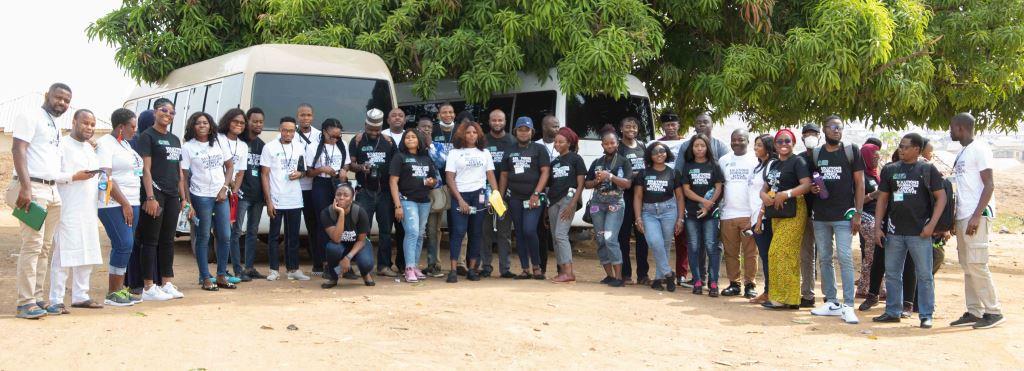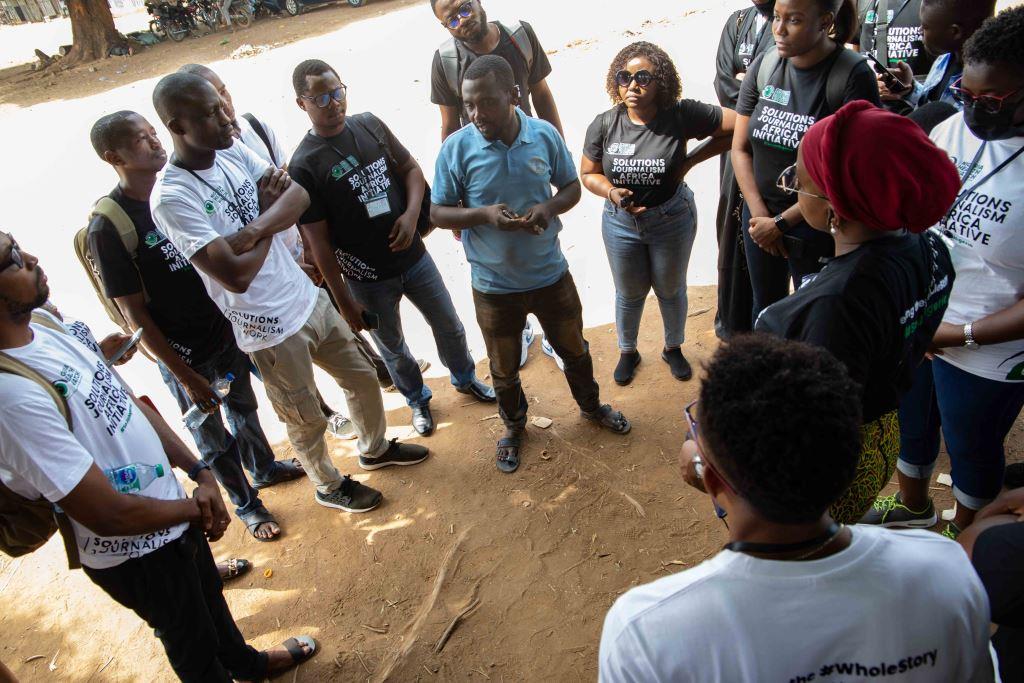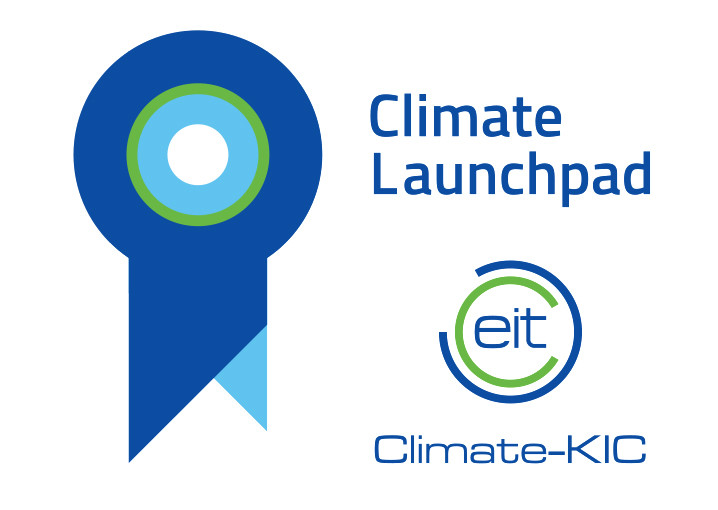General
Nigeria Health Watch Trains Journalists on Solutions Journalism

By Adedapo Adesanya
Nigeria Health Watch has kicked off the second cohort of newsrooms working to expand the practice of Solutions Journalism in Africa.
Solutions Journalism adopts a solutions-oriented approach to journalism; telling rigorous, investigative, and compelling stories of responses to various social problems so that they can be scaled up or replicated elsewhere.
It differs from traditional, often problem-focused journalism because it highlights what works, as opposed to what does not, and goes further to investigate why an intervention or solution to a social problem was able to bring change.
Three nominees from 10 newsrooms from across Nigeria participated in a two-day in-person training in Abuja to learn why solutions journalism matters and the framework for producing it.
The Nigerian Institute of Journalism (NIJ) also produced the first set of student cohorts to grace the training.
The training is part of the Solutions Journalism Africa Initiative project implemented by Nigeria Health Watch with support from the Solutions Journalism Network (SJN).
The first cohort received their training in 2021 and was supported by the project team to produce and publish solutions-focused stories across multiple platforms.
Speaking at the training, the Managing Director of Nigeria Health Watch, Mrs Vivianne Ihekweazu said, “It is important to look at how communities and individuals are solving various social problems and provide them with platforms to show what they are doing despite the challenges.”
The initiative, she said, therefore, presents a unique opportunity to redefine the way news is reported in Nigeria – providing an alternative news option and empowering Nigerians by showing where solutions have been found to everyday problems in the country, and not only reinforcing the often-accepted narrative.
In her remarks, Ms Ruona Meyer, the Africa Initiative Manager at the SJN said negative reporting has denied audiences of a holistic view of the news and denied journalists the power to build society through constructive reporting. She encouraged the participants to be part of this movement that is ensuring that audiences are empowered with the contents they consume.
The training culminated in a visit to the Wassa Internally Displaced Persons’ (IDPs) camp where participants interacted with community members to not only learn about their challenges but also how they are working hard to respond to those challenges.

According to Mr Abijola Amzat, the Managing Editor, International Centre for Investigative Reporting (ICIR), one of the 10 newsrooms participating in the second cohort, “The ICIR is happy to partner with Nigeria Health Watch to mainstream Solutions Journalism in Nigeria.
“We know that the material conditions of Nigerians are difficult now, but there are efforts from various sectors to improve situations. We believe journalists should report both the problems and the solutions people are seeking to improve lives.
“Therefore, this collaboration matters. Our goal is to produce journalists with a complete sense of awareness of the negative and the positive experiences of the people. We hope this project will bring us closer to the achievement of that objective.”
The practice of Solutions Journalism has continued to grow in Africa and the Nigeria Health Watch Torchlight series uses the approach to report on responses to health problems in Nigeria, with the Torchlight Africa series providing narratives of solutions in other African countries. To further expand the practice in Africa, the Solutions Journalism Africa Initiative will train newsrooms in Nigeria and Kenya on solutions journalism.
Following their training, the journalist nominees from the newsrooms will be supported and mentored over five months to investigate, write, produce, publish, or broadcast their solutions stories.
NHW Announces 2022 Solutions Journalism Africa Fellowship
Also, a fellowship known as the Solutions Journalism Africa fellows was launched by the organisers as part of the initiative. These fellows also joined the newsroom nominees in the training. They will also be supported to produce their stories and other fellowship deliverables in the next four months.
The 2022 Solutions Journalism Africa Fellows are:
- Israel Olatunji Tijani
- Umo Akwang
- Adam Alqali
- Blessing Oladunjoye
- Rasheed Ademola Adebiyi
- Usman Aliyu
- Abiodun Jamiu
- Folakemi Ajala
- Misbahu el-Hamza
- Emiene Erameh

General
Court Acquits Abba Kyari of 23-Count Asset Declaration Charge

By Adedapo Adesanya
Justice James Omotosho of the Federal High Court in Abuja has discharged and acquitted the suspended Deputy Commissioner of Police Abba Kyari of a 23-count charge of alleged non-declaration of assets filed against him by the National Drug Law Enforcement Agency (NDLEA).
Mr Kyari is being charged alongside his two brothers, who were accused of swearing to false affidavits to conceal the origin of some properties.
The court in its judgment held that the NDLEA failed to provide sufficient evidence to prove its case against the defendants, which is mostly the non-declaration of land properties.
Justice Omotosho noted that proving ownership of landed properties can be done through traditional history, title, acts of possession and possession by connection.
The prosecution did not provide any of these documents to show that the said properties located in Fountain Estate, Kasana, which belong to Ramatu Kyari, are truly owned by the police officer.
Also, the court held that the prosecution did not provide the same material evidence linking Mr Kyari to properties in Linda Choko Road, Asokoro and also Maiduguri in Borno State.
Mr Kyari, in his defense said the properties in Borno belonged to his father, which he left for him and his siblings.
It was judged that the prosecution did not prove otherwise, adding that the prosecution charged Mr Kyari’s brothers in bad faith for alleged conspiracy, which they failed to prove.
General
NCC Arraigns Netnaija’s Emma Analike Over Alleged Copyright Infringement

By Modupe Gbadeyanka
The chief executive of Netnaija Media Enterprises, Mr Emmanuel Analike, has been arraigned before a Federal High Court sitting in Abuja by the Nigerian Copyright Commission (NCC).
The suspect appeared before Justice Suleiman Liman on Wednesday over allegations bordering on copyright infringement.
He was accused by the NCC of using his online platform to make movies and others not belonging to him available for users to download on the internet.
According to the agency, Mr Analike has infringed copies of audio-visual materials distributed online via his website for online users. Netnaija is an online movie and music download site.
The prosecution counsel, Ms Gladys Isaac-Ojo, who works with the NCC, told the court that the defendant committed an offence contrary to and punishable under Section 44 (1) (a) of the Copyright Act, 2022.
However, Mr Analike pleaded not guilty to the charges preferred against him, prompting his counsel, Nnemeka Ejiofor, seek his bail.
The lawyer informed the court that the application was filed on Monday and supported by 23 paragraphs of affidavits and a written address.
But the judge refused to give a bench ruling and adjourned the ruling of the bail application to Monday, March 9, 2026, ordering the remand of the Netnaija chief in Kuje Correctional Centre.
General
Entries Open for ClimateLaunchpad Green Business Ideas Competition

By Modupe Gbadeyanka
Entries for the 2026 edition of the world’s largest green business ideas competition, ClimateLaunchpad, have opened.
In 2025, the programme, organised by Climate KIC, received over 2,700 applications from 40 countries. The winning ventures gain prize money, investor connections, and access to a global cleantech network.
This year’s edition is expected to be bigger and better, with climate innovators, green venture builders, and entrepreneurs from around the world given the opportunity to apply.
Since its inception in 2014, the programme has supported nearly 5,000 ideas across 97 countries, and this year, it is expanding its presence in Asia with Singapore hosting both the regional final and global grand final for the first time.
Participants move through several stages, including an initial mini-course to refine the concept, an intensive multi-day Boot Camp led by expert trainers, targeted coaching to perfect value propositions and investor pitches, national and regional finals, and a place at the global grand final, with prizes and access to a global climate network.
“Strengthening ClimateLaunchpad’s presence in Asia marks a profound new chapter for this programme and for the climate innovation movement more broadly. Asia is where so much of the world’s climate and nature future will be shaped, through business leadership, public-private partnerships and long-term strategic thinking,” the chief executive of Climate KIC, Kirsten Dunlop, stated.
“We look forward to supporting this momentum with new business ideas and innovation ecosystem collaborations across more than a dozen countries.
“This expansion opens space for deeper cross-cultural connections and for first-time founders to turn sparks of imagination into solutions that serve both people and planet,” Dunlop added.
Also commenting, the chief executive of Better Earth Ventures, Ms Rebecca Sharpe, said, “We are proud to host ClimateLaunchpad’s regional and global grand final in Singapore and to convene an international group of climate entrepreneurs from more than 50 countries.
“Climate solutions are emerging from every corner of the world, and bringing them together creates the kind of cross-border exchange and collaboration this moment demands. Our focus is to ensure early-stage founders have the structure, ecosystem access and support needed to move from idea to credible impact.”
-

 Feature/OPED6 years ago
Feature/OPED6 years agoDavos was Different this year
-
Travel/Tourism10 years ago
Lagos Seals Western Lodge Hotel In Ikorodu
-

 Showbiz3 years ago
Showbiz3 years agoEstranged Lover Releases Videos of Empress Njamah Bathing
-

 Banking8 years ago
Banking8 years agoSort Codes of GTBank Branches in Nigeria
-

 Economy3 years ago
Economy3 years agoSubsidy Removal: CNG at N130 Per Litre Cheaper Than Petrol—IPMAN
-

 Banking3 years ago
Banking3 years agoSort Codes of UBA Branches in Nigeria
-

 Banking3 years ago
Banking3 years agoFirst Bank Announces Planned Downtime
-

 Sports3 years ago
Sports3 years agoHighest Paid Nigerian Footballer – How Much Do Nigerian Footballers Earn














